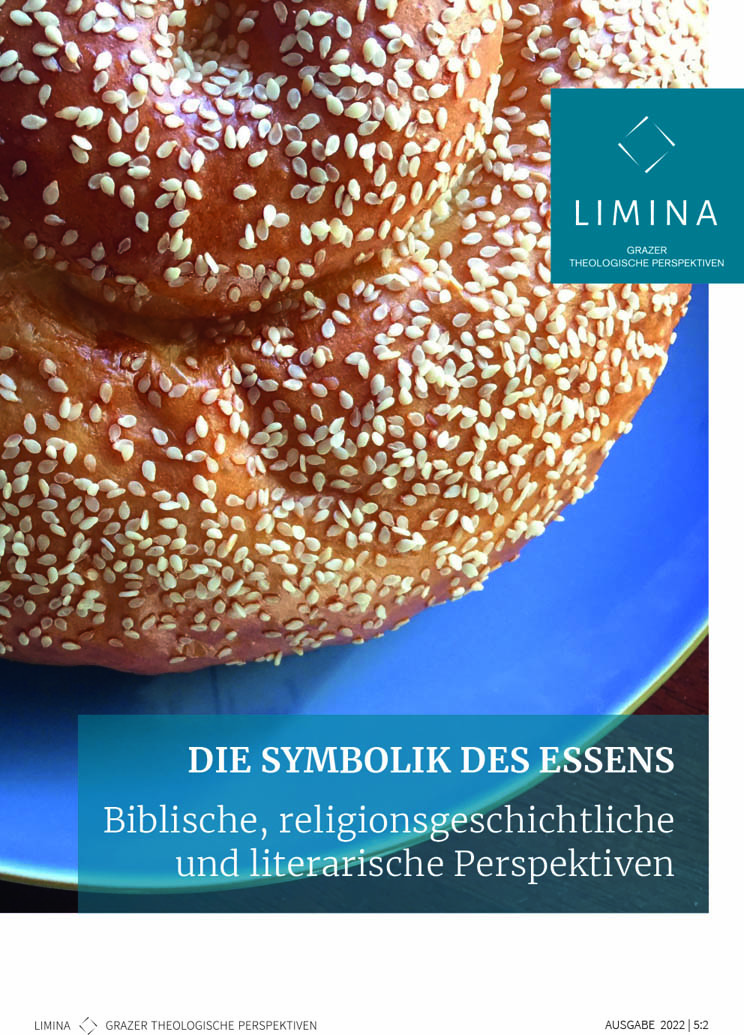Wider die Orthorexie Rituelle Transformation des Mahls bei Paulus und im neutestamentlichen Kontext
Hauptsächlicher Artikelinhalt
Abstract
Selbstverfügung, Transformation und die Veränderungen der Gesellschaft sind Themen, die bei Paulus mit Mahlgemeinschaften verbunden werden und aktuell im Diskurs über die Orthorexie verstärkt öffentliche Aufmerksamkeit erfahren. Der sozialgeschichtliche und kulturanthropologische Fokus darauf, dass in alltäglichen Praktiken Selbstwerte einzelner Personen und Gruppen dargestellt, verändert oder verworfen werden und dass diese Transformationen über längere Zeit unterschiedliche Phasen einnehmen, rückt vor allem das hellenistische Gemeinschaftsmahl ins Zentrum neutestamentlicher Betrachtung.
Während historische Studien häufig ausschließlich Grundlagenforschung zu den Charakteristika des Gemeinschaftsmahls betreiben, wird in jüngerer neutestamentlicher Forschung das Mahl als Ort der sozialen, politischen und religiösen Identitätsentwicklung angesehen. Die Perspektive, derzufolge sich das Christentum sukzessive relational zum Kontext der Gemeinschaften entwickelte, verleiht dem hellenistischen Mahl einen besonderen Stellenwert. Der Beitrag untersucht auf der Grundlage des hellenistischen Mahls, inwiefern die rituelle Praxis eine performative Transformation gewährleistet, die nicht nur den Einzelnen, sondern auch die Gemeinschaft erfasst. Um zu zeigen, dass die Transformnation weder nur auf die Praxis der frühen christlichen Gemeinschaften beschränkt ist noch allein im hellenistisch-jüdischen Kontext zu verorten ist, werden die Erzählung Joseph und Aseneth und die lateinische Überlieferung der Andreasakten hinzugezogen.
Artikel-Details
Das Copyright verbleibt ohne Einschränkungen bei den Autor:innen.
Der Inhalt von LIMINA steht unter der Creative Commons Attribution 4.0 International Licence. Mit der Einreichung eines Beitrags stimmen die Autor:innen den Nutzungsbedingungen der CC BY-Lizenz zu.

